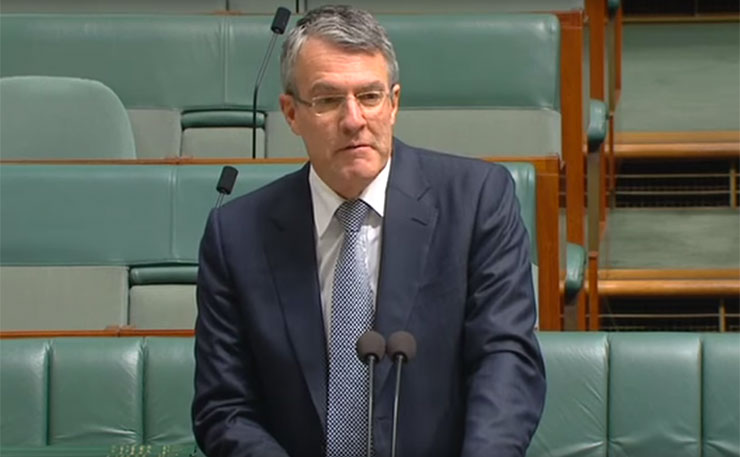A joint parliamentary committee has recommended the Abbott government scrap some of the most controversial elements of its plan to strip dual nationals of their citizenship.
Yet Australians who are dual citizens could still be stripped of their passport without ever being convicted of an offence by a court, but only if they’re not in Australia.
Hurriedly introduced to Parliament in June, the legislation has been heavily criticised for including a range of offences that go far beyond what most people would consider ‘terrorism’, including causing minor damage to government property, whistleblowing, and providing humanitarian assistance in conflict zones.
Apparently responding to these concerns, the Joint Committee – comprised entirely of Labor and Coalition MPs – has advised the government to make significant changes to the Bill, including the deletion of a section that would see dual citizens convicted of damaging government property lose their Australian passports.
The Committee also recommended the government tighten a section of the laws that would see Australians lose their citizenship without having any conviction recorded at all.
This section of the legislation has provoked particular derision from a range of legal and national security experts, including former Independent National Security Legislation Monitor, Bret Walker.
As a result the Committee has recommended the section only apply to those who are no longer in Australia.
Australians who remain in the country would therefore have to have a conviction recorded before they could lose their citizenship, unless they are in the service of a proscribed terrorist organisation, or an armed force at war with Australia.
The Committee suggested the government also amend the Bill to make clear what rights of appeal are available to those who lose their citizenship.
While winding back the power to remove Australians of their citizenship without a conviction being recorded, the Committee’s changes would also lower the number of circumstances in which a criminal conviction would lead to loss of citizenship.
Offences including advocating terrorism, inciting mutiny against the Queen’s forces, urging violence against members of a group, and assisting a prisoner of war to escape would no longer lead to loss of citizenship.
Furthermore, offences with a maximum sentence of less than 10 years could no longer lead to a loss of citizenship.
In a decision likely to raise the ire of legal experts further, the Committee said this should apply retrospectively in some circumstances.
This would mean dual citizens already convicted of one of these offences and sentence to more than 10 years of jail would lose their Australian citizenship.
Coalition MP Dan Tehan, the Committee’s chair, told reporters today that the government would consider the recommendations and look to legislate the changes in the coming weeks.
In their own press conference Opposition Attorney-General Mark Dreyfus and Immigration Minister Richard Marles appeared concerned about whether the Bill would be found to be unconstitutional, but said it was incumbent on the government, not them, to make the case.
“Our concerns have not been fully met by what are pretty much flat assurances from the government,” Dreyfus said.
In his comments Marles responded to criticism that the Bill would effectively make dual nationals second-class citizens.
“Dual citizens are just as Australian as anyone else,” he said.
Other proposed changes to the Bill would see children under 10 be exempt from citizenship loss, and would prevent the Minister from being able to remove the citizenship of children whose parents have theirs stripped for one of the offences in the Bill.
The Committee also asked the government to change the legislation to clarify that those providing “neutral and independent humanitarian assistance” not be considered to be in the service of a terrorist organisation, ensuring they are not caught by one of the Bill’s provisions.
Donate To New Matilda
New Matilda is a small, independent media outlet. We survive through reader contributions, and never losing a lawsuit. If you got something from this article, giving something back helps us to continue speaking truth to power. Every little bit counts.





